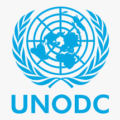Consultant – Development of Probation Training Strategy
JOB DETAIL
Result of Service
• A Probation Department Training Strategy, including SOPs for the operationalisation of the Probation Training Centre, taking into consideration international standards and good international and European practices, prepared, presented to national counterparts and reflected in the national probation strategy 2023-2027.
• Comprehensive training curriculum on basics of probation for professional capacity development of newly recruited and current probation staff, which includes relevant training materials, produced and presented to the national counterparts for institutionalization at the Probation Training Centre.
• Training program for training of trainers on core skills required for probation officers and training on motivational interview methods.
Work Location
Home-based with two visits to Bishkek (10 days each)
Expected duration
20.05.23-15.12.23
Duties and Responsibilities
The United Nations Office on Drugs and Crime (UNODC) is committed to achieving health, security and justice for all by tackling threats from illicit drugs, organized crime and terrorism worldwide. In Central Asia, the overarching strategic framework under which UNODC provides technical assistance is the UNODC Program for Central Asia. One of the core objectives of this Program is strengthening the rule of law in Central Asian countries through prevention of crime and promotion of effective, fair, humane, and accountable criminal justice systems in line with UN standards and norms.
In the Kyrgyz Republic, with support of the European Union, UNODC is currently implementing a project entitled ‘Support to Justice Sector Reform in the Kyrgyz Republic: Advancing Probation and Integrated Justice Information Management (JUST4ALL)’.¿The overall objective is to improve access to justice and rule of law in the Kyrgyz Republic through improved probation and criminal justice information management in line with international standards and norms.
Within the framework of this project, UNODC is providing advisory and technical support to the authorities of the Kyrgyz Republic, and in particular the Ministry of Justice and its Probation Department, with a view to improving training and professional development opportunities for probation officers.
In 2022, the project conducted a needs assessment and produced a white paper with recommendations on the development of the probation service and a checklist to guide efforts to promote individualization of probation work with probation clients and enhancing the professional knowledge and capacity of probation officers. To support the implementation of the recommendations from the white paper and roll out the training component of the project, an international expert will provide relevant advice to establish and institutionalize a sustainable capacity building system for probation.
Under the direct supervision of the International Project Coordinator in the UNODC Program Office in the Kyrgyz Republic and the overall guidance of the International Programme Coordinator at the Justice Section and the Regional Office for Central Asia, the consultant will be responsible for the following set of activities:
• Develop a strategy for the establishment and roll out of a comprehensive training program within the Probation Department based on the results of previous training needs assessments, the recommendations from the abovementioned white paper, and international standards and best practices (including Council of Europe and Confederation of European Probation guidelines) and include it as part of the Probation Strategy 2023-2027.
• Develop an annual training curriculum and syllabus, including i.a. core training/induction training, training for probation officers working with juvenile clients, training for supervisory probation officers (managers), and elective training.
• Provide advisory support for the training material developed by national stakeholders based on the developed training curriculum
• Develop standard operating procedures for the Probation Training Centre, including i.a. on administration and organisation; personnel and management; staff training and development; management of training records and reports; monitoring and evaluation; and facility operations.
• Provide advisory support on the development of a university course on probation in collaboration with national experts.
• Development and delivery of training of trainers on the delivery of the developed core/induction training curriculum to 24 proposed trainers.
Qualifications/special skills
An advanced university degree (Master’s degree or equivalent) in criminology, law, social sciences, business administration, behavioral science, psychology, or related discipline is required. A first level university degree in similar fields in combination with two additional years of qualifying experience may be accepted in lieu of the advanced university degree.
At least 7 years of progressively responsible experience in the field of criminal justice – related areas, in particular parole and probation institution, with a proven focus on the rehabilitation and reintegration programme is required.
Strong research and coordination skills, analytical capacities and ability to synthesize complex inputs into coherent support is required.
Understanding of international standards and norms in crime prevention and criminal justice, in particular the Nelson Mandela Rules and Tokyo Rules, preferably complemented by exposure to delivering technical assistance on alternatives to detention– related issues at international level, including in low- and middle-income countries is required.
In-depth knowledge of the current state of research on the use of technology to aid the reentry and reintegration of offenders to community is desirable.
Ability to develop and deliver training curriculum to parole and probation officers is desirable
Languages
English and French are the working languages of the United Nations Secretariat. For this position, fluency in English, with excellent drafting and communication skills, is required. Fluency in Russian is an advantage.
Additional Information
The Consultant is expected to dedicate 85 working days for this assignment. The Consultant
will receive payment upon the satisfactory completion and submission of the relevant draft
and final reports. The payments will be made in two tranches upon satisfactory completion and/or submission of outputs/deliverables.
No Fee
THE UNITED NATIONS DOES NOT CHARGE A FEE AT ANY STAGE OF THE RECRUITMENT PROCESS (APPLICATION, INTERVIEW MEETING, PROCESSING, OR TRAINING). THE UNITED NATIONS DOES NOT CONCERN ITSELF WITH INFORMATION ON APPLICANTS’ BANK ACCOUNTS.


